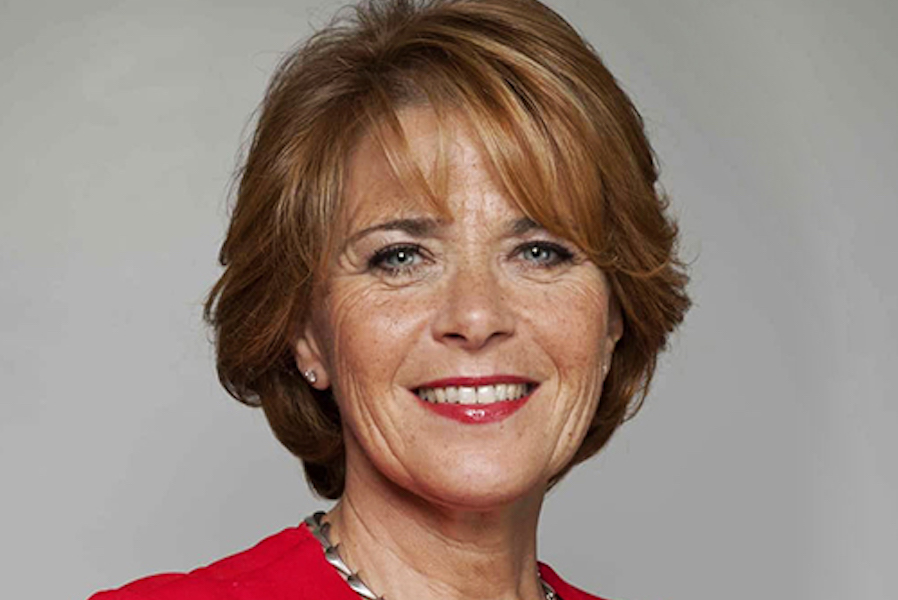Lorraine Heggessy will be delivering a keynote speech on ‘Leading to win in an engagement economy – a look at the key attributes of effective leadership in a fast-changing world’ at our International Women’s Day 2023 event on 6 March in partnership with Speakers Corner.
The first woman to be Controller of BBC One, now a media consultant and television producer, Heggessey commissioned Strictly Come Dancing, reinvented the brand to make it current, vibrant and more popular than ever, and has won multiple awards, including Woman of the Year at the Women in Film and Television Awards 2005.
During her keynote, Lorraine will share her fascinating career story with insight and learnings from her journey to leadership. We caught up with her to get a teaser of some of the insights she plans to share with our audience of female event industry leaders and emerging talent next month…
What do you think is the most significant barrier to female leadership?
When it comes to leadership, I think women can often get stuck in what I call the marzipan layer, where they’ve got above the cake, but never quite get to the icing. I like to think that a lot of the barriers have been broken down, but there are still huge pressures on women that are only just starting to be acknowledged. We saw it during lockdown, where women were home working, but also home schooling as well, and somehow their partners were getting away with just doing the home working.
My keynote session will touch on this, and this idea that women need to be the perfect mother, the perfect partner, and the perfect employee or career woman, but you can’t be the perfect everything and you have to decide what’s going to give. My advice is to ask what works for you – if you don’t ask for it, you won’t get it.
It’s one thing to do a job well and have the confidence to push yourself up the ladder but having the confidence to do it on your terms is important as well. You have to push yourself outside your comfort zone, and be prepared to take risks. The glass ceiling is glass – you can see and break through it. There is always somebody who can be the first and blaze that trail. I was the first woman to run BBC One, but there have been three women do the job since me.
What has been the most significant barrier or challenge in your career when navigating the path to leadership?
I don’t really feel like there were significant barriers because I always felt that there were opportunities for me. In lots of ways, I was resistant to progressing because I really loved producing on the road, so I didn’t want to climb up the ladder. I started progressing up the ranks on the producing side and got to the stage where I was a series editor or an executive producer but had no interest in being head of department. It was only when I was asked to apply for Head of Children’s at the BBC, that suddenly it appealed to me. Then I discovered that I loved running a department and realised I could release all this creative energy, which was incredibly satisfying.
I was prepared to expose myself and take on roles that were risky and to push myself outside my comfort zone. I didn’t go vertically up a ladder, I zigged and zagged but each zig and zag took me a little bit higher, whereas my best friend who started as a news trainee at the same time as me, she just went up a vertical ladder, and in the end, she became director of television. I went for short term satisfaction rather than long term gain, and I only ever took jobs I really wanted to do. I didn’t take jobs because I thought it would be good for my career. After all, if you do what you love, you usually do it well.
What are the key attributes required to be a good leader?
I think positive reinforcement, both as a boss and a mother, is the best way of getting the best out of people and rewarding them and praising them. On the whole, people don’t do enough of that. They criticise, they tell you when something is wrong, but don’t tell you when you are doing something right. Everybody has the choice where they want to work, and you have to make people want to work for you. We spend a lot of time at work, so make it a pleasurable and positive experience for your teams and create a positive and enabling environment.
The other thing about leadership is you need to transition from ‘doing’ to ‘being’. As you move from role to role in your early career, it’s all about doing, and training and learning to get better at what you do, be that marketing, organising events, or the financial side.
When you move into leadership roles, the higher up you get, the more it becomes about the being than doing, but you need to put the effort into training to be a leader. Leadership is not something you are automatically good at. You have to learn how to be a good leader and focus on developing your leadership skills. I had executive coach and found it invaluable. Without my coach, I would never have gone for the BBC One role, because she saw my potential.
There are still places available to join us at our exclusive International Women’s Day event on Monday 6 March 2023. Buy your tickets here now

